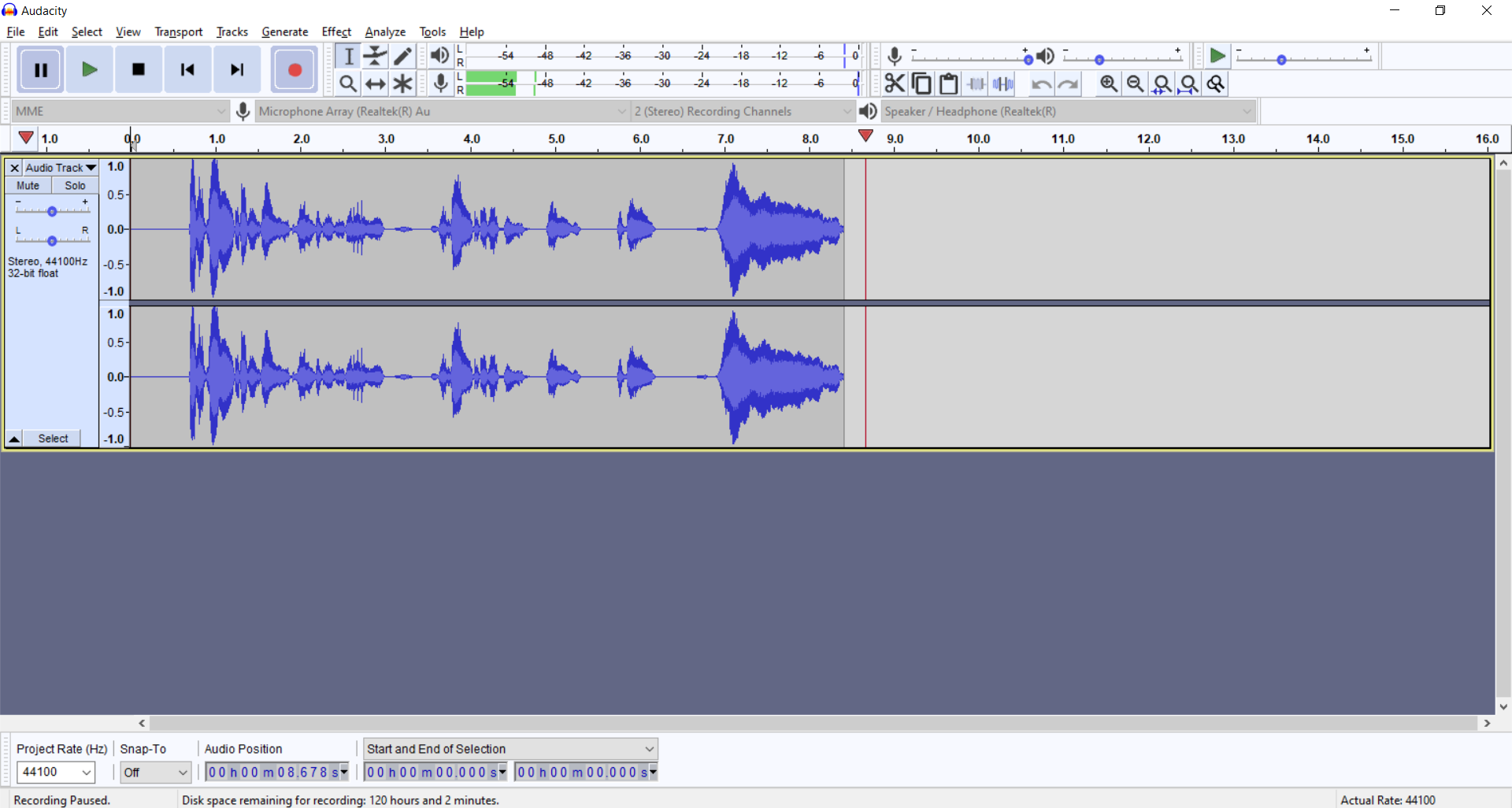
#LINE INPUT ON MAC FOR AUDACITY HOW TO#
The next method is also freeware, called ISSE : An Interactive Source Separation Editor the spectral editor looks like a lot of fun to use and this video explains how to create instruments or acapella’s quite easily, however, the task is time-consuming. These methods won’t completely remove your vocal without degrading your audio somewhat, with some tweaking and patience you should be able to get your track quite close to the instrumental version. You’ll need to accept a trade-off between some vocal artifacts and lower quality, muddier instrumental track Note that you’ll probably never achieve a perfect vocal-free track. To create a new MP3 file, use File > Save other > Export as MP3. When you’re done, use the File > Save Project option to retain the changes. Note that if you accidentally apply vocal removal with the wrong settings, you can undo it with Ctrl + Z or Edit > Undo. If you’re satisfied, click OK to proceed otherwise, try the other options, previewing the track until you’re happy with the expected results. This video explains the concept very well.

If using freeware Audacity you are able to use the phase inversion trick or run the vocal remover plugin which performs a similar task. Lastly, enable the Arrangement Recording button to begin recording. Next, select ‘Resampling’ from the Input Channel chooser and arm the track for recording. If everything goes right, you should only hear the vocals when playing back both tracks together.Ĭreate a new audio track to record the results. Load Live’s Utility device on the vocal mix and enable both the Left and Right Phase buttons. Also, make sure to line up both tracks along the grid. Load the vocal mix and instrumental mix to separate audio tracks in Arrangement View. All you need is two quality recordings and Live’s Utility device. Removing vocals in Ableton Live using the phase cancellation method is easy. He has done a lot of Ableton tutorials in the past that are extremely informative. If you don’t have time for a video this is a step -by-step that Ableton Certified trainer Rory PQ has put together. Here is a video from Slynk that will walk you through the process in Ableton. If you then play your 2 audio tracks together, you will cut out your vocal. Inverting your phase, or mirroring your audio. If you are aiming to create n acapella then you’ll need an instrumental version of the track you are using and then following the same phase inversion steps you will be left with the vocal.ĭuplicate track, 2nd track swap the stereo channels, and then effect invert. When perfectly in phase you will cancel out the vocal. In a nutshell, the idea is to have 2 copies of the tune in stereo and to invert the phase one copy and then play them together simultaneously. The first method is the oldest method in the list and requires some elbow grease & patience. If you can’t get a lossless (WAV/AIFF) then you should use the highest possible bit rate MP3 you can find. Vocals in one channel: Typically songs from the 1960s use this approach when stereophonic sound was still being explored in the studio.Īnnnnnnd you’ll need these tools, you need a stereo track and you should perform all of the tricks on lossless files so that you can retain as much information as possible.


How do you remove vocals from a song? The age-old question


 0 kommentar(er)
0 kommentar(er)
